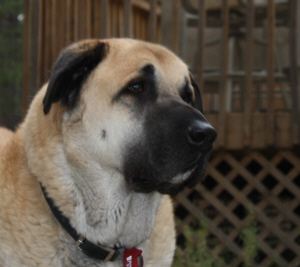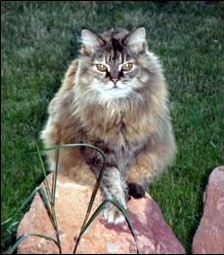One of the benefits of the Internet, for me at least, is the amazing number of photos, videos, and stories that I see about inter-species relationships. Like Koko the gorilla and her kitten, or Roscoe the orangutan and his dog, or Owen and Mzee, the tortoise and hippo who bonded after the 2004 tsunami.
It’s clear, at least to me, that we can no longer claim we’re different from other animals because of our consciousness, or even language and use of tools. Other animals communicate with a great diversity of sounds, and other animals, not just primates, use tools. Crows, ravens, and parrots have demonstrated their cleverness with tools in solving problems. Like so many things in life, we’ve moved beyond a classification of polarity and must now recognize the spectrum.
I don’t have any evidence to support this theory, but I suspect that people who more readily acknowledge sentience and consciousness in other species are those who are more at ease with their own animal natures. I make this assumption based on what I know about projection—that the more I suppress my awareness of who I am the more I will see undesirable traits in others. So if I am unaware of my innate, animal intelligence and rely solely on reason, I will only see reason in those I believe are most like me and will discount any other intelligence that may appear in other species.

Recently, a sweet-tempered dog I’ve had the privilege to meet underwent an amputation of his hind leg to stop an aggressive bone cancer that had begun there. Ruh is a service dog, his observable strength being his emotional intelligence. He knows how to comfort people. And after his surgery, the staff at the vet hospital told his guardian that he didn’t seem to be in any pain. His only vocalizations were in response to the whimpering of other dogs in the recovery room. You can see pictures of him (and donate to help cover his medical costs) at www.friendsofruh.com. His guardian hopes that once he recovers fully he’ll be able to visit children who are amputees. I’m sure his gentle intelligence will be a great comfort to them.

Many years ago, a starving and injured cat appeared in my yard. Her back leg had been broken and then healed crookedly, and the flesh wound associated with it still troubled her. I called my vet to ask advice, and she said that I could try cleaning the wound with hydrogen peroxide, but that I should be very, very careful, because it would sting and the cat might bite or scratch. I fed the cat first, and then soaked a cotton ball in hydrogen peroxide and dabbed it gently to her sore. She didn’t bite or scratch. She purred. I had the distinct impression that she knew I was trying to help her. She ended up living with me for the next twenty years, and clearly understood conversational English. Once at a party she tried to put her muzzle into a guest’s water glass, and I said, “Tilki, if you want water come to the kitchen and I’ll get you water.” Before I could move to stand up, she’d jumped down off the couch and headed for the kitchen.
Then there are the great beasts of the world—the elephants and whales—whom I suspect know a lot more about how the world works than we do. They communicate, they grieve, they show appreciation. To those who would accuse me of anthropomorphizing, I would suggest that to call it anthropomorphizing is to adopt a very narrow view of intelligence and emotion to begin with. I can’t bear to visit zoos because I see the sad awareness in the animals’ eyes.
I’m often visited by animals in my dreams. When I was a child, I had nightmares of bears or dogs on the back porch of my house or chasing me through the neighborhood. The energies they represented then were too big for me to handle, and so they were scary. But now animals rarely threaten in my dreams, even if they are predators in waking life. I draw the conclusion that I’ve come to terms with those energies, and that comfort extends to my waking life encounters with unknown dogs when I’m out walking. One evening, a sweet little dog strained at his leash to approach me, and his guardian commented that it was unusual for him to want to greet a stranger. Maybe he sensed that his enthusiasm would be welcome.
Those of you who act as guardian for any kind of domestic animal will undoubtedly have your own stories of animals who exhibit intelligence and emotion. I’m glad that we’re on the end of the spectrum that allows for written communication, so that we can share those stories with each other.